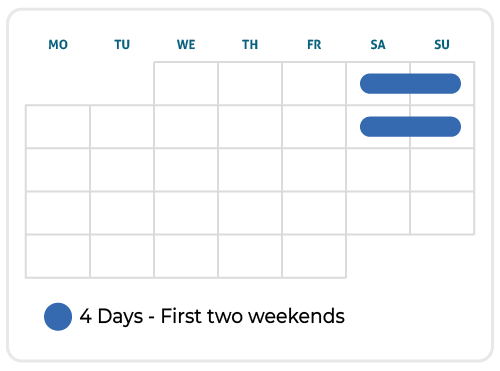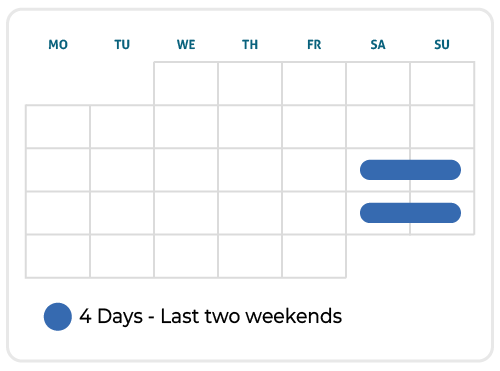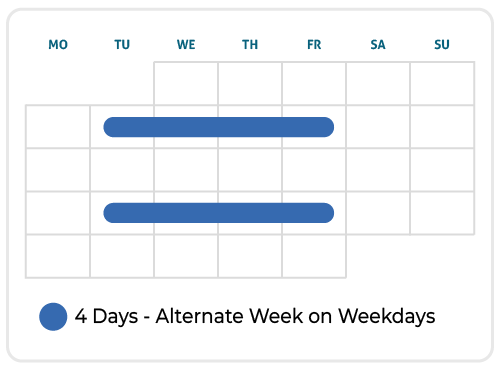Minitab Training Program Overview Aurora, IL
You've learned Six Sigma theory. You know when to run a capability analysis, perform a Gage R&R, or conduct a t-test. But when you open Minitab, hesitation creeps in. Hours are lost scrolling through confusing menus, struggling with messy data imports, and wondering which graph best communicates your findings. Meanwhile, your colleagues who've completed professional Minitab training courses produce precise insights in minutes, gaining the reputation of being "data-driven" experts. Your analysis might be correct in theory - but without fluency in the software, your credibility takes the hit. That's exactly why our Minitab certification course online exists. This isn't a generic, button-clicking software tutorial that parrots the help menu. Our Minitab training certification is designed and delivered by practicing Master Black Belts - professionals who've used Minitab to achieve multi-crore savings across Aurora, IL manufacturing plants, service industries, and corporate operations. You don't just learn what button to click - you learn why to click it, how to interpret every line of the session window output, and how to turn raw data into visual stories that decision-makers understand instantly. Our Minitab course online builds fluency, not just familiarity. You'll learn to handle the kind of messy, real-world data that never fits the clean textbook examples. You'll master advanced functions like Design of Experiments, regression modelling, and control chart interpretation. The course also teaches you to create professional-quality reports and automate repetitive analysis tasks - skills that make you indispensable in a data-driven organization. Completing the Minitab certification course isn't just about earning another credential - it's about transforming how you work. After this Minitab training, you won't just "use" the software; you'll command it with confidence. You'll become the go-to expert in your team - the person who can translate complex data into decisive business action with clarity, speed, and precision.
Minitab Training Course Highlights Aurora, IL
Hands-On Lab for Every Module
Learn by doing with practical, real-world exercises that build muscle memory and true proficiency, not just theoretical knowledge.
Taught by Master Black Belts
Learn from elite practitioners who use Minitab to solve complex business problems daily, not academics who only know the software's features.
Real-World Datasets
Work with messy, imperfect datasets from Aurora, IL manufacturing, IT, and service sectors, preparing you for the challenges you'll actually face on the job.
Focus on Interpretation, Not Just Execution
Master the critical skill of translating complex statistical output from the session window into clear, actionable business recommendations.
Flexible Training Schedules
Choose from weekend-only batches, weekday evening sessions, or intensive bootcamps designed around your professional commitments - no career breaks required.
24x7 Expert Support
Get your Minitab questions answered around the clock by certified experts, ensuring you never get stuck on a technical issue or statistical concept.
Corporate Training

Ready to transform your team?
Get a custom quote for your organization's training needs.
Upcoming Schedule



Skills You Will Gain In Our Minitab Training Program city83647
Data Manipulation & Cleaning
Stop struggling with messy data. Learn to import, stack, unstack, sort, and clean real-world datasets so your analysis is built on a solid foundation.
Statistical Process Control (SPC)
Go beyond just creating control charts. Master the art of interpreting patterns, identifying special causes, and using SPC to maintain process stability.
Measurement System Analysis (MSA)
Execute Gage R&R studies correctly to validate your data collection systems. Confidently determine if your measurement error is obscuring your process variation.
Hypothesis Testing
End the guesswork. Learn to select and execute the right statistical test (t-tests, ANOVA, Chi-Square) to make data-driven decisions with statistical confidence.
Design of Experiments (DOE)
Master the most powerful tool in Minitab. Learn to set up, analyze, and interpret factorial and response surface experiments to optimize your processes systematically.
Graphical Analysis & Reporting
Create clear, compelling graphs - from box plots to contour plots - that tell a story. Learn to customize and export them for impactful presentations to leadership.
Who This Program Is For
Quality Engineers & Managers
Six Sigma Green Belts & Black Belts
Process & Manufacturing Engineers
Data Analysts & Business Analysts
R&D Professionals
If you lead projects and meet PMI's mandatory experience requirements, this program is engineered to get you certified.
Minitab Training Program Roadmap Aurora, IL
Why Get Certified with Minitab Training?
Stop looking slow and inefficient.
Gain the speed and fluency in Minitab that marks you as a true professional.
End the imposter syndrome.
Gain the confidence to not only run analyses but to defend your interpretations to skeptical stakeholders.
Become the go-to data analysis expert on your team.
Earn the credibility to influence key process decisions.
Eligibility & Prerequisites
This certification is designed to build a practical skill. Unlike methodology certifications, the requirements are focused on your willingness to learn and practice, not on years of prior experience.
No Formal Experience Required: While a background in quality or data analysis is helpful, it is not a prerequisite. The program is designed to build your skills from a foundational level.
Access to Minitab Software: You will need a working version of Minitab Statistical Software on your computer to participate in the hands-on labs. We provide guidance on obtaining the free trial version.
Completion of Training Program: You must complete our full training curriculum to be eligible to sit for the certification exam.
Course Modules & Curriculum
Lesson 1: Risk Management Framework
Identify what can derail your projects before it happens and build comprehensive response strategies. Master both qualitative and quantitative risk analysis techniques, including Monte Carlo simulations and decision trees that enable data-driven risk decisions.
Lesson 2: Quality Management Systems
Build quality into your processes rather than inspecting it later. Learn the difference between quality planning, assurance, and control. Master quality tools like control charts and Pareto analysis to drive continuous improvement and prevent costly rework.
Lesson 3: Procurement & Contract Management
Procurement is a key area of the Project Management Professional exam and essential to professional project delivery. Learn to manage vendor contracts, conduct negotiations, and select the right contract types. This PMP course online module teaches practical approaches to vendor evaluation, risk allocation, and performance monitoring, ensuring your projects stay on schedule and within budget.
Lesson 1: Project Execution Leadership
Lead project teams through successful delivery while managing resources, resolving issues, and maintaining momentum. Learn to direct project work effectively, acquire and develop team members, and create reporting systems that inform rather than overwhelm stakeholders.
Lesson 2: Monitoring & Control Systems
Implement control systems that catch problems early and enable corrective action. Master integrated change control procedures, performance measurement techniques, and variance analysis methods that keep projects on track and stakeholders informed.
Lesson 3: Agile & Hybrid Approaches
Modern project management requires agility. This PMP certification course explores agile, predictive, and hybrid delivery approaches - helping you understand when and how to apply each. Learn Scrum ceremonies, Kanban flow metrics, and hybrid governance techniques that integrate flexibility into traditional structures. These topics are a major part of the current Project Management Professional exam content outline, making this lesson essential for every PMP-certified professional.
Lesson 1: Project Closing & Professional Responsibility
Execute proper project closure procedures and understand your ethical obligations as a certified project management professional. Learn to capture lessons learned effectively, manage contract closure, and navigate ethical dilemmas using the PMI Code of Ethics.
Lesson 2: Exam Strategy & Practice
Develop test-taking strategies specifically designed for the PMP exam format. Learn question analysis techniques, time management strategies, and how to approach situational questions that test your judgment rather than just knowledge recall.
Lesson 3: Final Review & Certification Readiness
This capstone lesson brings everything together. You'll review every process group, knowledge area, and agile concept included in the PMP course online curriculum. Our instructors guide you through final assessments, identify weak areas, and ensure full exam readiness.
Lesson 1: Navigating the Minitab Environment
Start your journey by mastering the Minitab interface - Session Window, Worksheet, Project Manager, and Graph Window. You'll learn to configure settings, manage projects, and use Minitab's powerful Assistant feature to guide your statistical analysis. This part of the Minitab training courses helps you become comfortable with the workspace so you can focus on analysis instead of navigation.
Lesson 2: Data Import & Manipulation
Learn to import data from Excel, text files, and databases without errors. Master essential data handling skills like stacking/unstacking columns, sorting, ranking, and using the calculator for transformations.
Lesson 3: Data Types & Formatting
Understand the critical difference between numeric, text, and date/time data types. Learn to format columns correctly, use formulas to clean messy data, and prepare your worksheet for analysis.
Lesson 1: Descriptive Statistics & Graphical Summaries
Move beyond averages. Generate comprehensive statistical summaries and create insightful graphical summaries that provide a complete picture of your data's distribution, central tendency, and spread.
Lesson 2: Root Cause Analysis Graphics
Master the essential graphical tools for problem-solving. Build effective Pareto charts to focus on the vital few, and create detailed Cause-and-Effect diagrams directly within Minitab.
Lesson 3: Data Distribution & Relationship Analysis
Visualize your data like a pro. Create histograms, box plots, and scatter plots to understand distributions, identify outliers, and explore relationships between variables.
Lesson 1: Control Charts for Variables Data
Learn to select, create, and interpret the correct control charts (Xbar-R, I-MR) for continuous data. Master the rules for identifying special causes and out-of-control conditions.
Lesson 2: Control Charts for Attributes Data
Monitor defect and defective rates effectively using P, NP, C, and U charts. Understand the assumptions behind each chart and how to apply them to your quality data.
Lesson 3: Measurement System Analysis (MSA)
Execute and interpret a Gage R&R study (Crossed and Nested) to validate your measurement system. Confidently determine your data's trustworthiness before making critical business decisions.
Lesson 1: Process Capability Analysis
Determine if your process is capable of meeting customer specifications. Calculate and interpret Cp, Cpk, Pp, and Ppk for both normal and non-normal data using Minitab's powerful capability tools.
Lesson 2: Hypothesis Testing in Practice
Here's where data-driven decision-making comes alive. You'll master how to perform 1-Sample, 2-Sample, and Paired t-tests, along with ANOVA, to statistically compare means and validate hypotheses. With guidance from expert instructors in our Minitab training courses, you'll learn to interpret p-values correctly, separate signal from noise, and draw confident conclusions that stand up to executive or client scrutiny.
Lesson 3: Correlation & Simple Linear Regression
Quantify the relationship between variables. Perform correlation analysis to understand the strength and direction of relationships and build regression models to make predictions based on your data.
Lesson 1: Multiple Regression Analysis
Build predictive models with multiple input variables. Learn to interpret coefficients, R-squared, and residual plots to create a statistically valid and practically useful regression model.
Lesson 2: Design of Experiments (DOE) - Factorial Designs
Master the most powerful process improvement tool. Design, analyze, and interpret full and fractional factorial experiments in Minitab to identify critical factors and interactions that impact your process output.
Lesson 3: Introduction to Response Surface Methodology (RSM)
Learn how to use RSM to find the optimal settings for your process variables. Create contour plots and optimization plots to identify the sweet spot for peak performance.





